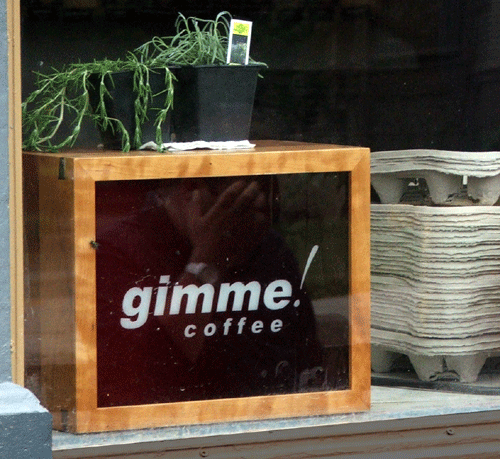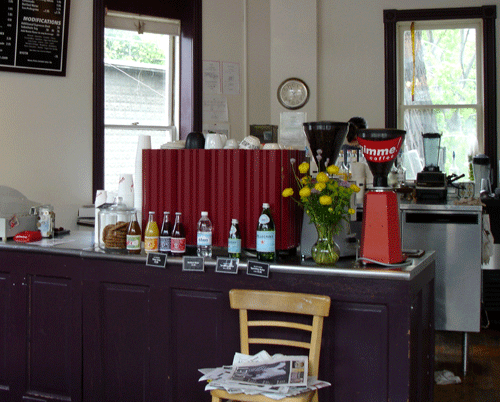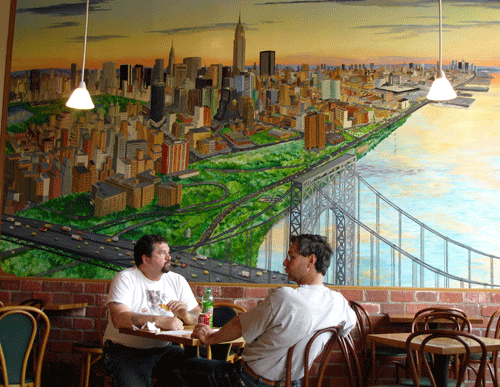
Tales of a 21st Century Gypsy
June 1, 2006, Trumansburg, NY
Itís not Sanger or Tucumcari
Staying with my sister made me realize that my theories about the demise of the small town are all wrong. She lives in Ė or outside of Ė Trumansburg, NY, a town of about five thousand in the Finger Lakes region of New York, some thirty miles north of Ithaca. Trumansburg is nothing like either Tucumcari or Sanger. I donít know what the economic base of the town would be, but these days I imagine itís the base of the region that matters, not the town itself. I donít really know what the base of the region is, either, but Iíd guess itís a mix of agriculture, tourism, and the universities in Ithaca. Maybe some IT and research spinoffs from Cornell? Some publishing, or other academic spinoffs? Thatís just a guess. And then of course there are the services needed everywhere; retail, medical, government, and so on.
Trumansburg doesnít have a distinct focus within that, though it may be known as one of the cuter towns around. But what it provides are the things all towns provide. Groceries (two of them), a pharmacy, a great New York pizza place, probably a few bars. A car parts store, a gas station, two dollar stores, some agricultural supply places, a hardware store. A town government that runs a school system, a public library run by someone, no doubt a fire department, maybe a doctor or dentist. Trumansburg also has a few things that might differentiate it from the other towns around. The Rongovian Embassy (better known as ďThe RongoĒ), a well-known Mexican restaurant and bar with live music in the evenings. A branch of Gimme Coffee!, a trendy coffee-house where the high school kids hang out in the afternoons. A music school where my niece is taking piano lessons. But aside from those, itís a small local center, like most others in the area.

